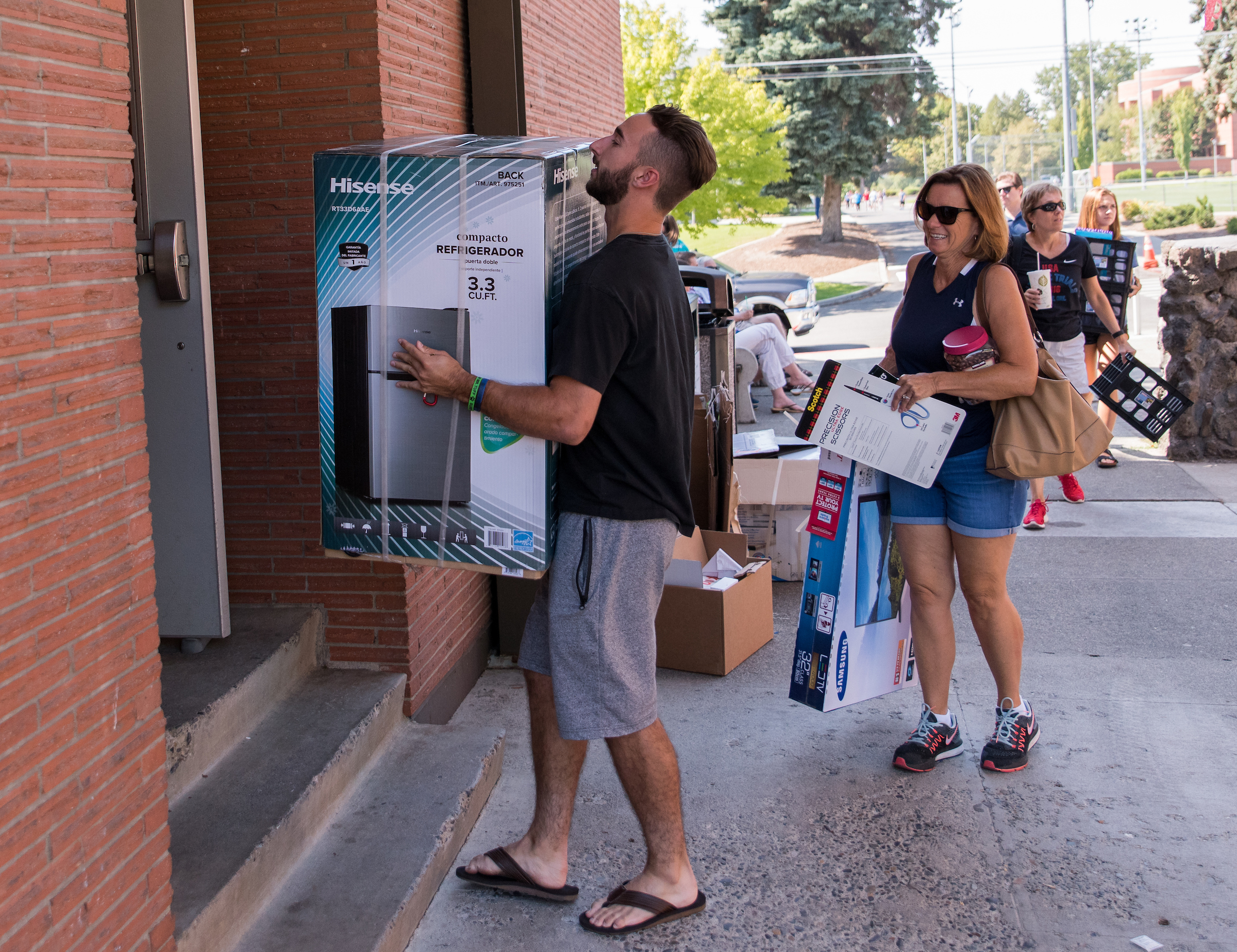Roommate Conflicts
By: Drew Satter, M.Ed., MBA, Area Coordinator, Housing & Residence Life
When arriving at college, many students have stars in their eyes about how they will be best friends with their roommate. Students often have an initial honeymoon period in which things are great and they love their roommate. Once the students are a few weeks into college, they may start to have conflicts with one another. This can be a natural progression for students, especially when some of them may be sharing a space with someone for the first time. Roommate matching can only do so much when assessing a student’s compatibility with another student, and is even less effective when a parent or loved one fills out the application for their student. You can read more about that here. So, once these individuals meet – or maybe they already know each other – and things start going south, we have a few tips on how to properly navigate the relationship.
Roommates should be filling out a room agreement. Many students fly through this as they are still in the honeymoon phase and don’t believe that their roommate would ever do (fill in the blank)! Well, once the roommate crosses a line that was never discussed, how is that roommate supposed to know that the line was crossed? Sometimes there are obvious things that people should know, but the roommate may not have lived with anyone before or doesn’t have the social- or self-awareness needed to recognize problem behavior. Sometimes, the courtesies involved with living with another person, don’t always match up. When I was in school, I didn’t have very much money and my sister brought up some Sun Chips for me, which were my favorite chips at the time. I wanted to break out these chips at an opportune time with my new friends. Instead, my roommate helped himself to my chips, as he figured that we would just share all of our food. When I returned, and noticed that half the bag was gone, it was a bit upsetting (even though it was a pretty small thing). It was an awkward conversation to bring up, as we didn’t initially talk about how we would share food in the room, plus I actively avoided conflict as a first-year student. Anyway, I ended up avoiding the situation for quite some time and would only passively address things as they would come up, such as his smell and lack of general hygiene. Current Drew is disappointed with freshman college student Drew, and I wish that I would have handled that situation better. Had I taken the time to take the roommate agreement seriously, by establishing boundaries and expectations, as well as approaching my roommate directly, I could have saved some time and stress.
As awkward or “not lit” as it might be as a student, to address a roommate directly and clearly, it can go a long way toward preventing roommate conflicts. Some students aren’t aware that their actions or words are having a negative impact on a roommate. Students have so much going on in their lives, outside of their collegiate home, that they may just expect it to go well and may not pay much attention to what is going on. This is completely understandable, yet for something that can cause so much strife if not taken care of, the roommate situation is sometimes taken for granted. If there is something troubling a student, they should be able to refer to the roommate agreement and, no matter what, be kind and direct in a request. When bringing up an issue that one student has with a roommate, students should also be aware that they could be doing something that (gasp!) annoys their roommate! As I’ve facilitated roommate disagreements that have gotten out of hand, that is something that I’m sure to mention to all parties involved and, probably 80% of the time, this has not occurred to the student. I still do that with my spouse and we’ve been happily married since early 2011.
If the student has addressed the situation and still does not know what to do, or maybe the student needs some tips on how to address the roommate situation, we have staff on hand to help! Each student has a Resident Assistant they can contact in order to meet and talk through their situation. The RAs and Residence Directors have been through ample training and should be able to help students out with any roommate conflict. If the conflict gets to the point that a mediated conversation needs to happen, our staff is also trained to help with that. We hope that students will be able to handle most issues on their own, as these are important life skills that we in Residence Life want to instill in our students. As a last resort, room changes are available, but there is a lot of value in working out conflicts with roommates, if they arise.
I hope this information has been helpful for helping your student with addressing their roommate issues. We are happy to help and we know that parents and other loved ones hear some of the situations that may not hit the ears of our staff. Also, please know that sometimes there will be different versions of the story that are told to families when compared to the version that staff hear. Sometimes, students will vent to their loved ones and the initial feeling is much more dramatic and impactful than how the student feels the next day. In my 12 years of experience working in Residence Life, these are the things that I’ve seen arise more than a few times. Again, we are here to help, so please encourage your student to reach out to staff, if needed!

